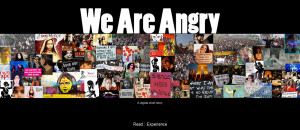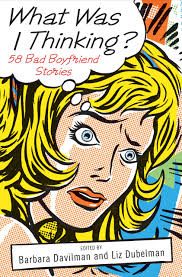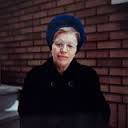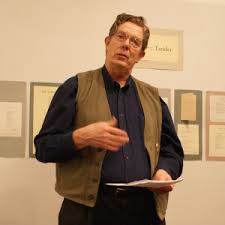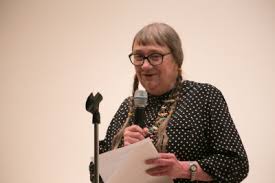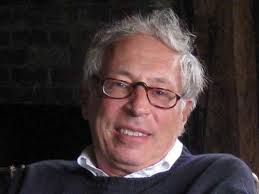Lorna Landvik: Best to Laugh
August 3, 2015 by David
Filed under Fiction, WritersCast
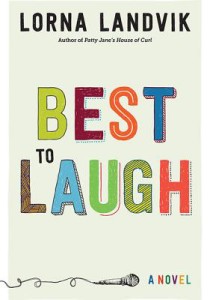 978-0-816698-97-4 – University of Minnesota Press – Paperback- 312 pages – $16.95 (ebook editions available at lower prices)
978-0-816698-97-4 – University of Minnesota Press – Paperback- 312 pages – $16.95 (ebook editions available at lower prices)
I have been reading and enjoying Lorna Landvik’s wonderfully funny books for a long time. I can’t remember how I discovered her writing but am guessing it might be the fact that she is from Minnesota that got me to try out one of her early books. And then since her books so perfectly capture the Minnesota social landscape and ethos, I kept going and read most of her novels. I come by my Minnesota interest because part of my family is from Minnesota, and I lived in St. Paul for a few years in the seventies, and I maintain a strong interest in the North Country and especially its literary life (oh and their baseball team too — see my recent interview with former Minnesota Twin Jim Kaat).
I suspect Landvik gets typecast by many readers as a “women’s” writer – her books are rich with female characters and speak to and for women’s social ethos. And in a book business that lives and dies by book categorization, maybe she is typecast also because her books are funny, and have titles that sound like they come from a female centric universe (Angry Housewives Eating Bon Bons, Your Oasis on Flame Lake, Patty Jane’s House of Curl). But it’s a mistake for any reader to overlook Landvik as there is a lot going on in these books. Landvik is certainly entertaining – her background as a stand up comedian and actor informs her writing and her stories. But comedians and comedic novelists are usually mining something deeper, and Landvik’s humor leverages a clear understanding of human nature and both our fallibility and the strength that allows us to live through pain and grief and the difficulties of daily life.
Best to Laugh is Landvik’s most recent novel, published last year by the adventurous University of Minnesota Press. It’s her most autobiographical novel, for sure. Her main character in this book, Candy Pekkala is half Korean and half Norwegian (unlike Landvik). She goes to Hollywood to follow her dream to be a stand up comedian (as Landvik did). The book follows her adventures in La-La land as she falls in with her neighbors in Peyton Hall, a class LA building that houses a cast of interesting and compelling characters, who all become Candy’s family as she becomes the success she has aimed to become. The combination of “old Hollywood” and less romantic 70’s era Los Angeles makes for a terrific backdrop. And the characters are picture perfect. Candy, her friends and family are impossible to resist.
In real life, Landvik did work as a stand up comedian in Los Angeles, temping at places like Atlantic Records and the Playboy Mansion (writing film reviews for Hugh Hefner’s private VHS tape collection) while pursuing her showbiz dream. Despite her success as a comedian, Landvik eventually turned to writing, which she turned out to be pretty good at doing. She still likes to perform – her ‘Party in the Rec Room’ is performed once a year at the wonderful Bryant Lake Bowl theater in Minneapolis (yes, theater in a bowling alley!) This is an all-improvised show based on audience suggestion. Landvik describes it this way “While I enjoy a meaty, dramatic role, to me there’s nothing more satisfying than making a roomful of people snort beer up their noses as they laugh.”
You might find yourself doing the same while reading Best to Laugh.
Author website here. Author page, on Goodreads, worth a visit.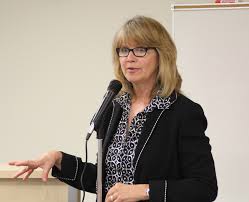
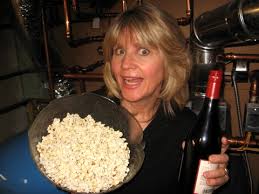
Podcast: Play in new window | Download
David Wilk talks with Justo Hidalgo of 24symbols
July 19, 2015 by David
Filed under Ebooks and Digital Publishing, PublishingTalks, Technology, The Future
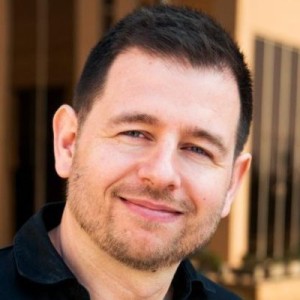 Publishing Talks began as a series of conversations with book industry professionals and others involved in media and technology about the future of publishing, books, and culture. As we continue to experience disruption and change in all media businesses, I’ve been talking with some of the people involved in our industry about how publishing might evolve as our culture is affected by technology and the larger context of civilization and economics.
Publishing Talks began as a series of conversations with book industry professionals and others involved in media and technology about the future of publishing, books, and culture. As we continue to experience disruption and change in all media businesses, I’ve been talking with some of the people involved in our industry about how publishing might evolve as our culture is affected by technology and the larger context of civilization and economics.
I’ve now expanded the series to include conversations that go beyond the future of publishing. I’ve talked with editors and publishers who have been innovators and leaders in independent publishing in the past and into the present, and will continue to explore the ebb and flow of writing, books, and publishing in all sorts of forms and formats, as change continues to be the one constant we can count on.
It’s my hope that these conversations can help us understand the outlines of what is happening in publishing and writing, and how we might ourselves interact with and influence the future of publishing as it unfolds.
24symbols is a service to read and share digital books in the cloud, working in any reading device that has an internet connection, and that gives users access to an international and multi-publisher’s catalogue – essentially a subscription model that competes with other subscription services like Scribd, Oyster and Amazon to provide readers with easy access to ebooks for a low monthly fee (currently $8.95 US) and of course provides publishers with access to readers outside of the traditional “buy one copy” model that is still the predominant form of book commerce. The offering to readers is pretty clearly described here. Of course, in terms of competition, it’s not just the other subscription services they are up against, but mainly the hegemony of dedicated reading devices and apps where readers are so used to shopping for ebooks.
24symbols, based in Spain, and strongest in Europe, has over 200,000 titles (and growing fairly quickly), and is now making inroads into the US market. It seems to me that a diversity of business models and ultimately some different ways for readers to read digitally is going to be a necessary groundwork for the growth in e-reading that so many in publishing have thought would have arrived by now.
Justo Hidalgo is a co-founder of 24symbols, a technologist and book lover, and someone whose thinking and energy I have long admired. I wanted to find out more about this company, and its plans for the future, as well as Justo’s current thinking about ebooks and digital reading. This interview will not disappoint those who are interested in different perspectives on the current digital book environment. Justo provides a broad range of stimulating ideas here.
Aside from 24symbols, Justo also teaches Product Strategy and Innovation at the Master’s Degree program in Industrial Design of Nebrija University, and Technology for Managers at the Nebrija Business School in Madrid, Spain. Justo is member of the Internet Society and Board Member and Mentor at Tetuan Valley.
Justo holds a Ph.D. from the University of A Coruña, Spain and a B.S. in Computer Science by the Autonomous University of Madrid, Spain. He has received training in Product Management, Product Marketing, Innovation and Creativity in the universities of Stanford and University of California Berkeley.
Some of his work and thoughts can be viewed on Twitter (@justohidalgo), his blog (in Spanish) and here (in English).
My apologies to listeners, as there were some recording difficulties with this interview, and while our fantastic tech team has done a great job cleaning it up, there are still some low level background noises during some parts of the interview.
Podcast: Play in new window | Download
Martin Goldsmith: Alex’s Wake
July 6, 2015 by David
Filed under Non-Fiction, WritersCast
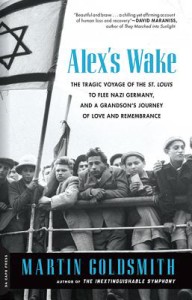 978-0-306823-71-8 – DaCapo Press – paperback – 352 pages – $15.99 (ebook editions available at lower prices)
978-0-306823-71-8 – DaCapo Press – paperback – 352 pages – $15.99 (ebook editions available at lower prices)
I seem to have an inordinate interest in books about the Holocaust, doubtless because I think about my unknown relatives who perished in Lithuania and Poland during WW II, and feel somehow that knowing what happened to other Jews in that awful time will help me imagine the story of what happened to my own relatives. It’s difficult not to wish that there were more accounts of heroic escapes from the Nazis and their allies in every country they occupied, but more often than not, the stories we do get to know are deeply sad, frustrating, or horrific.
Martin Goldsmith’s parents came to the United States in 1939 from Germany, having survived the Nazi regime only because they were classical musicians who played in the Kulturbund, a special group of Jewish musicians that entertained other Jews in Germany (that was the subject of Martin Goldsmith’s last book, THE INEXTINGUISHABLE SYMPHONY: A True Story of Music and Love in Nazi Germany).
This new book, Alex’s Wake, is principally the story of Goldsmith’s grandfather and uncle, who tried to escape Germany in 1939 on the ill-fated journey of the German luxury liner, the SS St. Louis, which took more than 900 Jewish refugees (at their own expense, paying high prices to the German steamship company) across the Atlantic, first to Havana and then, having been turned away by the Cubans, to the USA and Canada, which also refused the refugees entry to their countries. This meant that the ship had to sail back to Europe, where amazingly and after great effort, the refugees were accepted by England, Holland and France. Only those who went to England truly escaped, however, as soon after the Germans overran both France and Holland, and these forlorn, long suffering escapees were once again under the thrall of the Nazis, who now could kill European Jews without restraint.
Goldsmith’s father suffered lifelong guilt for not being able to rescue his father and brother (and one must imagine, also his mother and sister, whose stories are really not told here, but who also were murdered in the war). That guilt was ineffably passed on to the grandson, and this book is Martin’s attempt to expiate that guilt, and to understand as much as it is possible, the story of his family’s travails more than 70 years ago.
Goldsmith and his wife traveled to Europe, spending six weeks retracing the journey of his antecedents, Alex and Helmut Goldschmidt. That journey forms the structure of the book, around which is built the narrative of his family’s formerly happy and successful life in Germany, their struggles to escape the Nazis, the terrible journey of the SS St. Louis , and especially moving, the detailed tracking of Alex and Helmut’s terrible time in occupied France where their hopes were truly lost, and where, after great suffering, they were transported to Auschwitz and finally their deaths. Along the way, Goldsmith learns a great deal about his family’s life in Germany, meets many interesting people, and in fact helps to change the lives of others as well as his own.
This is a fine example of narrative nonfiction and while at times painful, well worth reading. Goldsmith’s improbable effort to expiate his family’s guilt and suffering brought forth forgiveness and a sort of transcendence both for himself and others involved in the story, and the book’s honesty and beauty in the face of pain enables us to overcome the sorrow that inevitably arises when experiencing a story of deeply felt pain and loss. He’s an engaging writer and memoirist, and a fine storyteller.
Martin Goldsmith has been a radio host for public radio and Sirius XM, where he now is director of classical music programming and appears on the Symphony Hall channel. Goldsmith has also sung with the Baltimore Opera Company and the Washington Opera. He has also acted in Washington-area theaters, including Arena Stage. His music reviews have appeared in the Washington Post and he is the author now of three books, including Alex’s Wake.
Website for the book is here. Alert – we had a really good conversation so this interview runs slightly long at almost 42 minutes.
Podcast: Play in new window | Download
David Wilk talks with Sherisse Hawkins from Beneath the Ink
June 22, 2015 by David
Filed under Ebooks and Digital Publishing, PublishingTalks, Technology, The Future
 Publishing Talks began as a series of conversations with book industry professionals and others involved in media and technology about the future of publishing, books, and culture. As we continue to experience disruption and change in all media businesses, I’ve been talking with some of the people involved in our industry about how publishing might evolve as our culture is affected by technology and the larger context of civilization and economics.
Publishing Talks began as a series of conversations with book industry professionals and others involved in media and technology about the future of publishing, books, and culture. As we continue to experience disruption and change in all media businesses, I’ve been talking with some of the people involved in our industry about how publishing might evolve as our culture is affected by technology and the larger context of civilization and economics.
It’s my hope that these conversations can help us understand the outlines of what is happening in publishing and writing, and how we might ourselves interact with and influence the future of publishing as it unfolds.
Sherisse Hawkins is co-founder with Alex Milewski of Beneath the Ink, a Boulder, Colorado based ebook technology company. Beneath the Ink is working on what is likely the next phase in ebook development evolution, which is the provision of tools that enable authors and publishers to easily create ebooks with interactive content and multimedia resources. As Sherisse says in our interview, the story must and will remain the core of the book, but there are many types of books where the reading experience can be meaningfully expanded with the addition of expanded content.
This concept is not new of course, but what differentiates Beneath the Ink is the way their technology integrates the additional material to enable the reader to choose whether to engage or not, and making sure the presence of the option is not distracting to the reader. Their proprietary technology creates what they call “binks,” which contain the media content within the book file, as opposed to simply being a link out to the open web (which is, of course, also always enabled in epubs and mobi files). Another other key offering is to make it easy for creators to manage their own ebook media production process simply and easily.
I think it makes sense to enable this sort of feature in the digital reading experience. Not all readers want to “go deeper” or be taken out of the main text. But many others do. In a way it’s like having enhanced footnotes – and many of us do enjoy a good footnote to enhance our understanding of the text at hand. Fiction is another matter and is likely going to be a much greater challenge both for writers and for readers. But again, there are plenty of readers who do enjoy taking side trips from the main text, perhaps to better understand a character or a place inside a novel.
Beneath the Ink creates the tools for expanded reading experiences; of course, it remains to be seen how they are used and deployed by creators, and appreciated by readers. Aside from Binks, Beneath the Ink now has a new product called PageDip, which enables the one-click creation and has also created the option for users to offer their ebooks as hosted WebBooks, essentially untethering the reading experience from devices and apps, something that many in the ebook development world have been promoting for a number of years.
Beneath the Ink appeared on Shark Tank April 17, 2015! heavy.com did an interview with Sherisse about her appearance.
I like what this company is doing and have done some experimenting with their technology for my clients. I wanted to talk to Sherisse about her vision for the future of digital publishing and also to learn more about her experiences in creating technology and offering it to the publishing community. Beneath the Ink has done a great deal of research into the ways that readers prefer to interact with digital content and Sherisse and her team have developed their software accordingly. Her insights into the ways that digital reading is evolving are very worthwhile to hear.
Sherisse is the former VP of software development at Time Warner cable and was a Senior Electrical Engineer in the Walt Disney Imagineering Show and Ride division, responsible for the design, development, and installation of attractions in four major Disney theme parks. She received a BS degree in Engineering from the University of Arizona, and earned a Masters in Engineering Management from the University of Colorado. Alex Milewski is the other co-founder of Beneath The Ink. His background is in web and mobile application development using Javascript, PHP, CSS3, HTML5 and many other programming languages. Beneath the Ink is based in Boulder, Colorado.
Podcast: Play in new window | Download
Jim Kaat: If These Walls Could Talk: New York Yankees
June 14, 2015 by David
Filed under Non-Fiction, WritersCast
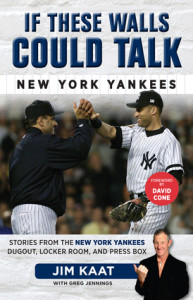 978-1-62937-024-8 – Paperback – Triumph Books – $14.95 – written with Greg Jennings, foreword by David Cone (ebook editions available at lower prices).
978-1-62937-024-8 – Paperback – Triumph Books – $14.95 – written with Greg Jennings, foreword by David Cone (ebook editions available at lower prices).
Doing this podcast has been great fun for me. I’ve gotten to read some wonderful books, and have met and talked to well over 200 interesting and intelligent writers. Now I can add having a conversation with one of my favorite baseball pitchers to the rewards of being a literary podcaster not long after having the honor of interviewing a Man Booker award winning author (Anne Enright).
Jim Kaat was a Major League pitcher from 1959-83 with the Washington Senators (1959-60), Minnesota Twins (1961-73), Chicago White Sox (1973-75), Philadelphia Phillies (1976-79), New York Yankees (1979-80) and St. Louis Cardinals (1980-1983).
Kaat was an amazingly durable left-handed pitcher, winning 283 games against 237 losses, with an ERA of only 3.45 (that’s average runs allowed over nine innings) and 2,461 strikeouts in 4,530 innings. Kaat had his best year in 1966 while with the Twins, going 25-13 with a 2.75 ERA and 205 strikeouts in 304 innings over 41 starts. Jim was a three-time All-Star and a winner of 16 Rawlings Gold Glove Awards for best fielder at his position, 12 of which ran consecutively from 1962-73. Both Gold Glove marks were long-standing records for pitchers until being eclipsed by Greg Maddux (13 consecutive from 1990-2002, 18 overall).
Kaat’s career spanned four decades and seven U.S. Presidential administrations, and at the time of his retirement in 1983, his 25 years of Major League service were a record. Since then, only Nolan Ryan (27) and Tommy John (26) have logged more seasons.
After all those years of playing baseball at a really high level, Jim went on to become a talented and skilled baseball announcer. He worked first in the minor leagues but showing a natural skill as an observer of the game, he quickly moved up to the big leagues, broadcasting first for the Minnesota Twins and later many years for the New York Yankees. After he retired from his second career, he made another comeback and is still working today as an announcer for the MLB network. For his broadcasting work, Kaat won an Emmy in 2006 for “On-Camera Achievement” after being nominated for two Emmys the previous year for “Outstanding Live Sports Coverage.”
If These Walls Could Talk is an enjoyable collection of anecdotes and stories, organized loosely around the positions on a baseball team. It’s mostly about the Yankees, and New York fans will love this book, of course. But there is much more in this book than Yankees stories – in it, Kaat tells his own story in his natural and appealing manner. Anyone who appreciates baseball will find these stories told from the perspective of a 60 year veteran of the game to be compelling and engrossing.
It was great fun for me to have the chance to talk to one of my heroes, Jim, “Kitty” Kaat. Thanks Triumph Books for publishing this fun book. And to those Hall of Fame voters on the Golden Era committee – please vote Jim Kaat into the Baseball Hall of Fame – he deserves to be there!
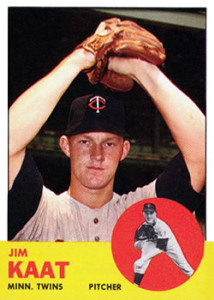

Podcast: Play in new window | Download
David Wilk talks with Lyndee Prickitt about We Are Angry
June 7, 2015 by David
Filed under Ebooks and Digital Publishing, PublishingTalks, Technology, The Future
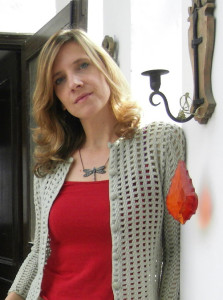 Lyndee Prickitt’s powerful and engaging storytelling project, We Are Angry, fits readily into both the categories of interviews I am doing here – she’s both the author of the (book) project as well as the primary publishing impressario who put together an innovative form of digital storytelling. But the interview does need to go into just one category, so I have chosen to call it a Publishing Talks interview. Publishing Talks began as a series of conversations with book industry professionals and others involved in media and technology about the future of publishing, books, and culture; Lyndee Prickett’s work is an important addition to that conversation.
Lyndee Prickitt’s powerful and engaging storytelling project, We Are Angry, fits readily into both the categories of interviews I am doing here – she’s both the author of the (book) project as well as the primary publishing impressario who put together an innovative form of digital storytelling. But the interview does need to go into just one category, so I have chosen to call it a Publishing Talks interview. Publishing Talks began as a series of conversations with book industry professionals and others involved in media and technology about the future of publishing, books, and culture; Lyndee Prickett’s work is an important addition to that conversation.
We Are Angry is a fictional response to the very real and difficult issues of rape and abuse of women in modern India.
From the We Are Angry website:
“After the brutal December 16, 2012 gang-rape in New Delhi, many people in India and beyond felt a need to express their anger, fears and concerns about why this was happening. Women and men took to the streets to put a voice to their anger. Social media swelled with introspection and pontification. Anonymous mourners created real life and online commemorations. Movie stars satirized and campaigned. Artists painted street walls and canvasses. Actors staged plays in local parks and international cultural festivals. Screenwriters wrote movies. Singers sang.
The conversation across the nation changed. Women and their rights was not just a matter for earnest do-gooders and NGOs, but the topic du jour and the inspiration for a panoply of expression for weeks and months. And then the din quietened. People tired of talking about how women, at home and abroad, have been and should be treated.
We Are Angry is an effort to keep the conversation alive – fusing traditional fictional text storytelling with other media, bolstered by real news content and annotations, and showcasing a range of art and expression from a team of people who want to harness their anger and work creatively for change.”
Lyndee Prickitt is a multimedia writer and journalist. She created her company, Digital Fables, to tell stories using the web as a platform. After working with Reuters and the BBC for more than 15 years, she wrote and produced the award winning digital short-story, Weareangry.net. Though a native Texan, Prickitt lives in New Delhi with her Indian husband and their daughter.
We Are Angry was nominated for a Webby, won the Transmedia Story of the Year from Digital Book World, and was a runner up in the New Media Writing Prize. The Guardian newspaper called it “devastatingly powerful.”
There has been a great deal of discussion within the international ebook community about whether digital storytelling will migrate away from devices and out to the web. What Lyndee Prickitt has done with We Are Angry is a powerful example of how this can be done. When you land on the site, you are immediately offered two options, one to “read” and the other to “experience” the story. I suspect most readers choose first to experience the story.
I really like what she says on the We Are Angry site about this project:
“We are living in mixed media times and yet rarely do we find the media coalescing in a truly integrated and artistic way, a way that could take storytelling – especially issue-based storytelling – to another level, not replacing books or the linear text experience, but offering another construct.
We Are Angry is an attempt, a humble first attempt, at doing this: creating 360 degree digital fiction.”
Listen to this interview, then visit the website and experience the story for yourself. Let me know what you think about it.
Podcast: Play in new window | Download
David Wilk talks with Liz Dubelman about Vidlit
May 26, 2015 by David
Filed under Ebooks and Digital Publishing, PublishingTalks, The Future
 Publishing Talks began as a series of conversations with book industry professionals and others involved in media and technology about the future of publishing, books, and culture. As we continue to experience disruption and change in all media businesses, I’ve been talking with some of the people involved in our industry about how publishing might evolve as our culture is affected by technology and the larger context of civilization and economics.
Publishing Talks began as a series of conversations with book industry professionals and others involved in media and technology about the future of publishing, books, and culture. As we continue to experience disruption and change in all media businesses, I’ve been talking with some of the people involved in our industry about how publishing might evolve as our culture is affected by technology and the larger context of civilization and economics.
I’ve now expanded the series to include conversations that go beyond the future of publishing. I’ve talked with editors and publishers who have been innovators and leaders in independent publishing in the past and into the present, and will continue to explore the ebb and flow of writing, books, and publishing in all sorts of forms and formats, as change continues to be the one constant we can count on.
It’s my hope that these conversations can help us understand the outlines of what is happening in publishing and writing, and how we might ourselves interact with and influence the future of publishing as it unfolds.
My friend, and sometimes colleague, Liz Dubelman is the founder and CEO of VidLit Productions, LLC, a renowned and well regarded book marketing and content-creating company. I’ve been a big fan of her work for a long time, since first coming across her wonderful and hilarious video promotion for the really fun book, Yiddish With Dick and Jane by Ellis Weiner and Barbara Davilman. In fact that video was one of the very earliest book trailers, and was certainly one of the best and most successful of the many that have followed it. As soon as I saw it, I quickly sought out Liz, and discovered how smart she is about online content and communities, and over the years we have collaborated on a number of projects.
From 2011 – 2013 Liz was VP, Production for JibJab Media, the pioneering digital entertainment company that specializes in personalized social expression and has provided laughs to 100 million users worldwide.
Liz co-edited and contributed to What Was I Thinking? 58 Bad Boyfriend Stories, which was based on the VidLit series of the same name. She is also a magazine writer of both fiction and nonfiction. Well over a million people have viewed her short story Craziest on the Web.
Prior to her digital career, she worked for ten years in film production. Her television work won her two Emmys – one as a producer and one as a director. She was the first woman member of the labor negotiating committee of I.A.T.S.E., New York local 644 (cinematographers), and is an establishing member of Women in New Technology.
Liz is now taking Vidlit into new areas of online book marketing and publishing. Vidlit is providing authors with a platform to help them with the challenging and complicated task of self promotion. The supposition, which seems correct to me, is that authors are often best at writing, and while in today’s publishing environment, they need to think about and act like marketers, that is not their core competency, and they will almost always need creative, intelligent and friendly helpers to do this kind of work for them. Vidlit comes from a writer’s imagination and mindset. Liz wants to make writers successful, bring their stories to audiences and she has a good track record of understanding how online media can work. What she has to say about writers and readers interacting in the new media environment is an ideal topic for a Writerscast interview.
I like the simplicity of Vidlit’s mission statement:
“…to make fiction and creative non-fiction indispensable. It’s our belief that stories help our lives to make sense.”
Podcast: Play in new window | Download
Anne Enright: The Green Road, a novel
May 18, 2015 by David
Filed under Fiction, WritersCast
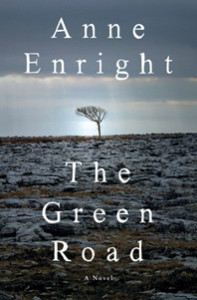 978-0-393-24821-0 – Hardcover – W.W. Norton – 2015 – 314 pages – $26.95 (ebook versions available at lower prices)
978-0-393-24821-0 – Hardcover – W.W. Norton – 2015 – 314 pages – $26.95 (ebook versions available at lower prices)
Anne Enright is an Irish fiction writer who has been widely praised for the lyrical quality of her prose and for eccentric characters and heartfelt renderings of modern family life, received the 2007 Man Booker Prize, the British Commonwealth’s most prestigious literary award, for her novel, The Gathering (2007). In that year’s competition, her book was considered a longshot for the prize, but nonetheless was was selected unanimously by the panel of judges. The Gathering was also named “Irish Novel of the Year” at the 2008 Irish Book Awards.
Subsequently, Enright wrote and published more novels, including The Forgotten Waltz (2012) which won the Andrew Carnegie Medal for Excellence in Fiction, about which Francine Prose said in her NY Times review, “a nervy enterprise, an audacious bait-and-switch. Cloaked in a novel about a love affair is a ferocious indictment of the self-involved material girls our era has produced.”
Enright went to college at Trinity College, Dublin, and took an MFA in writing at University of East Anglia in England, but soon after ended up working in television production in Ireland, which she did successfully for several years. She then turned to writing, first short stories, and then novels, at which she clearly excels. Since the Man Booker prize raised her profile exponentially, she has won numerous awards and traveled widely in support of her novels.
Enright’s newest book, The Green Road, is about a very modern Irish family, splintered and scattered, but always focused on the mother, the unhappy and complicated Doraleen. The family lives in County Clare, the farthest eastern shore of Ireland, as Enright says, the last stop before America, a place of immense beauty and also loneliness and struggle for those who continue to live there. And there is a real green road there, the old path along the water.
For the first half of the book, Enright alternates voices and scenes, from County Clare to New York to Africa to Dublin as she introduces us to the children in the Madigan family. And then the scene shifts back to the home turf of the family, as the children return for their mother’s birthday, together for the first time in many years. And this is where the heart of the novel lives.
It’s a beautiful book, one that has stayed with me after I read it, and even after I had the opportunity to talk about the book, the characters and the writing process with author Enright. She is an incredibly accomplished writer, able to convey immense depth about characters, a places, or events, with an economy of language and a piercing eye. We had a lively and interesting conversation while she was in New York on her book tour. And I am really pleased that she was willing to read two sections of the book, as hearing the author’s voice in this particular instance is terrifically important as her tone and intonation helps us feel the book more deeply.
I also had the pleasure to welcome her to the United States as she is now the first official Irish Fiction Laureate. This recording is of a wonderful conversation with one of our best living novelists, about a novel I am happy to recommend to all readers. And here is a terrific piece she wrote about the writing of the book for The Guardian (which we did talk about in our conversation). While I could not find a website for Ms. Enright but here is a pretty nicely done fansite for her work. And for those of you who have become fans of Enright’s work, this interview in the Paris Review about The Forgotten Waltz will be of interest as well. Publisher WW Norton has a page for the author here.
Photo of Anne Enright credit Domnick Walsh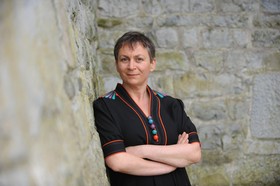
Podcast: Play in new window | Download
David Wilk talks with Anne Kingsbury and Karl Gartung about Woodland Pattern
May 11, 2015 by David
Filed under Publishing History, PublishingTalks
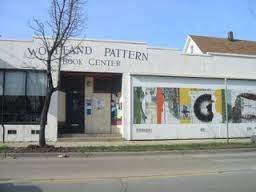 Publishing Talks began as a series of conversations with book industry professionals and others involved in media and technology about the future of publishing, books, and culture. As we continue to experience disruption and change in all media businesses, I’ve been talking with some of the people involved in our industry about how they believe publishing might evolve as our culture is affected by technology and the ebb and flow of civilization and economics.
Publishing Talks began as a series of conversations with book industry professionals and others involved in media and technology about the future of publishing, books, and culture. As we continue to experience disruption and change in all media businesses, I’ve been talking with some of the people involved in our industry about how they believe publishing might evolve as our culture is affected by technology and the ebb and flow of civilization and economics.
I’ve now expanded the series to include conversations that go beyond the future of publishing. I’ve spoken with editors and publishers who have been innovators and leaders in independent publishing in the past and into the present, and will continue to explore the ebb and flow of writing, books, and publishing in all sorts of forms and formats, as change continues to be the one constant we can count on.
It’s my hope that these conversations can help us understand the outlines of what is happening in book publishing and writing, and how we might ourselves interact with and influence the future of book publishing as it unfolds. This new interview reflects my interest in the history of independent literary publishing, an area in which I have been active for a long time. And this particular conversation reflects some longstanding personal relationships as well.
Woodland Pattern is a nonprofit literary arts center founded by artist Anne Kingsbury and poet Karl Gartung in 1979. It has been an incredible resource for readers and writers during all that time, committed to community and the arts in a way that may be unique in America. I’ve known Anne and Karl since before they started Woodland Pattern, and we have long shared many interests in writers and writing that we admire and are inspired by.
Anne and Karl chose the name for the place from a passage in (the extraordinary) Paul Metcalf’s wonderful and neglected book, Apalache, that describes the woodland culture of native Americans living south of Lake Superior – they had “pottery but not agriculture.” Karl and Anne’s extreme dedication, hard work, and commitment to their founding vision is at the heart of the institution, but of course over nearly 40 years, its work has been furthered by dozens of volunteers and now paid staff, as well as hundreds of writers and artists and of course thousands of supporters in its community.
The center houses a bookstore with over 25,000 independently published literary and arts titles otherwise unavailable in Milwaukee – or anywhere else it would seem. Woodland Pattern has always made inventory decisions for noncommercial reasons. As they say about themselves: “as booksellers and as presenters of art and literature, we want people to know that there is more than what you see at your chain book store, more than you are taught in school, more than what is reviewed in the papers. We hope to act as a catalyst, putting readers together with small press literature.”
Their space now also includes an art gallery where they present a wide range of exhibitions, artist talks, readings, experimental films, concerts and writing workshops for adults and children.
Anne Kingsbury is also an incredible artist whose work can be found in museums, galleries and private collections. She too is an American original. Karl Gartung is a poet who has worked full time as a truck driver (and union leader) for more than 35 years. His commitment to poetry lived in daily life is inspiring.
Woodland Pattern has also been a leader in promoting writers from Wisconsin, most notably, Lorine Niedecker, a Wisconsin native from nearby Fort Atkinson whose work, rooted and grown in that place through years of hard work, is finally being recognized as among the finest poetry of our era.
I am in awe of the work that has been accomplished over the past 35 years by Anne, Karl and everyone else at Woodland Pattern. They have made the acts of curation and presentation of art and literature in many forms into a lifelong effort. They engender and foster great art and connect living artists to communities of individuals, not as consumers, but as active participants in the work itself. This is brilliant, and should be celebrated for the depth and breadth of the work the organization has supported for so many years.
It was my great pleasure to speak with Anne and Karl about Woodland Pattern and their work and lives while they were visiting New York in spring 2015. As you can tell when you listen, this was a conversation among old friends with much shared history and common interests that I hope will inspire many of you to visit Woodland Pattern in Milwaukee (or at least their website here until you cam get there in person).
Woodland Pattern Book Center is a 501(c)(3) tax-exempt non-profit organization.
Here is their inspiring mission statement: “Our goals are to promote a lifetime practice of reading and writing, to provide a forum and resource center for writers/artists in our region, and to increase and diversify the audience for contemporary literature through innovative approaches to multi-arts programming.”
Podcast: Play in new window | Download
Jeffrey Lewis: The Meritocracy Quartet (four novels)
April 27, 2015 by David
Filed under Fiction, WritersCast
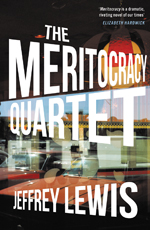 978-1-908323-45-3 – trade paperback – Haus Publishing – March 2015 – 742 pages – $19.99 (ebook versions available at lower prices)
978-1-908323-45-3 – trade paperback – Haus Publishing – March 2015 – 742 pages – $19.99 (ebook versions available at lower prices)
Jeffrey Lewis has had a really interesting life and career path. He went to Yale, where he was the Class Poet, graduating in the mid-sixties, and went to law school at Harvard. His first career was in law enforcement – he was an Assistant District Attorney in Manhattan. Then he left New York to work on the now famed television show, Hill Street Blues, embarking on what became a terrifically successful career in television and film writing. And then he more or less left television to write serious literary fiction.
In the past few years, Lewis has published a total of six novels. The four that make up the “Meritocracy Quartet” were originally published between 2004 and 2008 – Meritocracy: A Love Story in 2004, The Conference of the Birds in 2005, Theme Song for an Old Show in 2007 and Adam the King in 2008.
Before writing fiction, Lewis won a number of awards including two Emmys, the Writers Guild Award, the Humanitas Prize, the People’s Choice Award, and the Image Award of the NAACP, as a writer and producer of Hill Street Blues. His work for television and film includes projects for HBO, Showtime, the BBC, TNT, and many of the major film studios. His last screenplay, before turning full-time to writing fiction, was Paint, set in the New York art world, and is the last unfinished project of the great director Robert Altman.
He lives in Los Angeles, California and Castine, Maine.
The four books in the “Meritocracy Quartet” take place in successive decades and are meant to document and explore what these periods meant to the post war baby boomers. Each novel in the series stands alone, but together, they are a powerful and really striking portrait of the inner and outer lives of the cultural elite of this generation.
Lewis is a wonderful writer. His work is clear, never over wrought and expressive of the emotional lives of his characters. The books all take place in environments Lewis lived in, periods he lived through. It would be all too easy to try to read these novels as romans a clef, but I think they are much more than that. As a true novelist, transforming the lived experience to find its meanings, both for himself and for his readers, Lewis becomes an alchemist of the soul, his words then, taking us to places far beyond. These books are really an impressive accomplishment, and well worth the effort to read all four together, at once, for a deeply rewarding experience.
“Lives are not seamlessly sewn together, but rather forged by coincidence, necessity, and expectation, a fact that Lewis brilliantly conveys. . . . Lewis’ memories portray a modern, American life.” (San Francisco Book Review)
I really enjoyed talking to Jeff about these books and his work as a writer.
Podcast: Play in new window | Download

